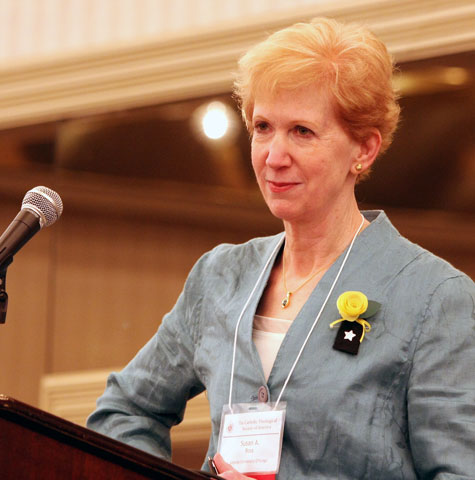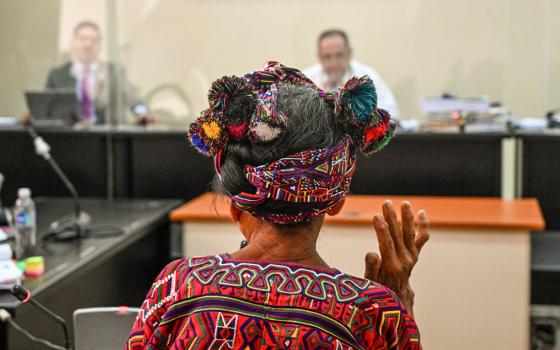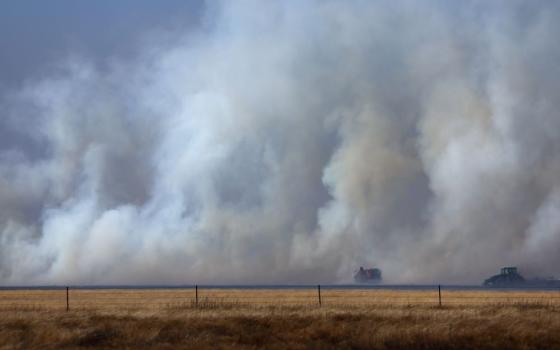
At a time when less than a quarter of Roman Catholics in the United States attend weekly Mass, members of the Catholic Theological Society of America made the intriguing choice to focus their annual meeting on the theme of "Conversion." Hundreds of Catholic scholars from around the world gathered here June 6-9 to discuss the theme from theological, ethical, feminist, ecclesiastical and global perspectives. It was the 68th convention of the 1,400-member society.
The meeting's opening program was decidedly less fervent than in the previous two years. In 2011, the society overwhelmingly approved a statement of support for Fordham University professor St. Joseph Sr. Elizabeth Johnson, whose book Quest for the Living God: Mapping Frontiers in the Theology of God was criticized by the doctrinal committee of the U.S. Conference of Catholic Bishops.
The convention was equally spirited in June 2012 in St. Louis. It took place just days after the Vatican's Congregation for the Doctrine of the Faith had handed down a notification to Yale University professor Mercy Sr. Margaret Farley for her book Just Love: A Framework for Christian Sexual Ethics, which the congregation said "does not conform to" official church teaching. Farley made her only public statements about the controversy at that conference, which attracted an atypical level of media attention.
Though resolutions or statements of support for embattled theologians seemed unnecessary this year, many of the scholars who presented at the conference linked the theme of conversion to the topics of church renewal and the urgent need for dialogue between bishops and theologians.
This latter issue has been the focus of Susan Ross' tenure as society president over the past 12 months. Ross, chair of the theology department at Loyola University Chicago, last summer set up a program offering seed money to groups of society members who invited their bishop to a gathering where they would study a text and share a meal. Ten groups applied for the funding and eight met for dinner with their local ordinaries. In some cases, the bishops even picked up the tab.
"I am gratified to see that some of these have borne fruit," Ross told members during her presidential address. "My hope is that these dialogues can continue on their own power."
The project was inspired in part by the response of women religious to the Congregation for the Doctrine of the Faith's criticism of the Leadership Conference of Women Religious in April 2012. Ross believes theologians are in a situation analogous to the sisters, who countered the Vatican's condemnation with a respectful request for genuine dialogue with the hierarchy.
Ross' closing speech contemplated the fragmentation in both the church and scholarly community, and the difficulty of carrying out the theological task in a world and, sometimes, an institutional church that is not hospitable to theologians. "I think it is fair to say that one basic truth emerging from the new evangelization is that both the world and the church are continually in need of conversion," she said.
Richard Gaillardetz, who succeeds Ross as president, said he plans to continue his predecessor's project. "Over the past several decades, previous executive directors have played a significant role in determining the overall tenor of the ongoing dialogue between the bishops and the wider spectrum of Catholic theology," Gaillardetz said in an interview.
Shortly before the society's meeting, the U.S. bishops appointed a new executive director of their conference's Secretariat of Doctrine and Canonical Affairs. Jesuit Fr. Peter Ryan, a former seminary professor, will play a key role mediating between the bishops and theologians.
Ryan has served as a board member of the Cardinal Newman Society, a conservative watchdog group dedicated to "promoting and defending faithful Catholic education," and of the Fellowship of Catholic Scholars, founded in 1977 to "redirect the Catholic scholarly community towards a more friendly approach to the teaching authority of the Church."
Ryan was also a senior fellow at the Westchester Institute for Ethics and the Human Person, a Catholic think tank that, until 2009, was housed on the grounds of the education and training center of the religious order Legionaries of Christ and its lay wing, Regnum Christi, in Thornwood, N.Y.
"The CTSA strives to maintain a constructive relationship with the bishops' conference and its Committee on Doctrine," Gaillardetz said. "We are hopeful that Fr. Ryan will help cultivate a relationship of collaboration and mutual respect between the [bishops'] Committee on Doctrine and Catholic theologians and their professional theological societies."
But concerns about the society's relationship with the U.S. bishops did not overshadow the hope that many of this year's speakers seem to be finding in Rome since the election of Pope Francis. Many scholars cited the new pope's recent statements and homilies as evidence that ecclesial renewal, long a topic of conversation at the society's meetings, may be on the horizon.
Echoing Francis' desire for a "poor church" that is not "self-referential," plenary speaker Ormond Rush, an Australian priest and scholar, reminded his colleagues that the "overall pastoral and reform agenda of Vatican II" was "that the face of the church would faithfully mirror the genuine face of ... God."
"Vatican II marks a significant re-calibration of the Catholic imagination concerning a truth always held but now newly perceived: The present, too, not just the past, is revelatory and authoritative," he said.
"As the Holy Spirit leads the church in history through conversion to the fullness of truth," Rush continued, "God is challenging the church to discern the new things that God is doing in Christ through the Spirit -- by scrutinizing the times in light of the Gospel."
[Jamie L. Manson, NCR books editor, writes the online column Grace on the Margins.]




